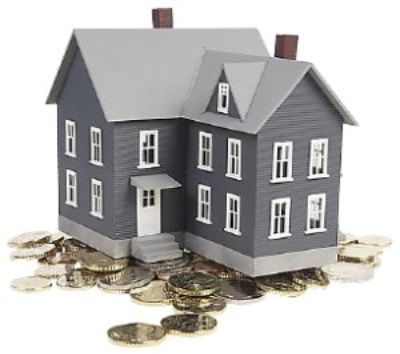Housing as an Investment
 The recent bursting of the housing bubble has made people think twice about the old notion of buying a house as an investment. Felix Samon argues that it’s almost never a good idea.
The recent bursting of the housing bubble has made people think twice about the old notion of buying a house as an investment. Felix Samon argues that it’s almost never a good idea.
Real estate is pretty much never a good investment in a down market, no matter how granular and detailed your local knowledge is. Meanwhile, in an up market, it doesn’t matter much either. Yes, that gentrifying neighborhood is going up in value. But so’s the old-money neighborhood a mile away, and so’s everything else in a 20-mile radius.
Matt Yglesias seconds this:
I thought the tax subsidies and the fact that I liked the place made it worthwhile for me to buy a condo a bit more than a year ago. In the future, it might be worth more than what I paid. But if it is, that will almost certainly be because DC-area property in general has increased in value. So if I, say, need to move into a bigger place to have kids then an increase in property values isn’t going to help me. Sure I’ll “make money” on selling my existing place, but I’ll just need to pay more for a new place.
Right. But many people move to the suburbs, especially as they get older and have kids. Or, even if they stay in the same pricing zone, they’ve earned equity that helps finance the move to a bigger, more expensive place. Renters, meanwhile, are basically throwing money down a rathole each month.
Salmon continues:
Remember that it’s sometimes not a good idea to buy a house even if your total monthly payments are lower than what you would be paying in rent on the same place. If prices fall, rents can fall too: just ask any landlord in New York City. And while the renters next door are happily renegotiating their lease so they pay $300 a month less than they were paying last year, you’re stuck with the same fixed mortgage for the next 30 years. If only you’d held off buying, your monthlies would be lower while renting, and you could buy now, if you were so inclined, at a lower price. Price the option: if you’re renting, you always have the option to buy. If you already own, you don’t.
Look, there’s no doubt that there’s risk in buying. Sometimes, prices go down for the short term and, yes, that means you might have been able to rent comparable housing for less. On the other hand, prices frequently go up. And a mortgage locks in the initial rate.
Beyond the rise and fall of prices, the main investment advantage of purchasing a home is that the tax code allows writing off mortgage interest. For those in expensive real estate markets, that’s a huge incentive.
To be sure, there are downsides to home ownership — higher maintenance costs, constraints on mobility, transaction fees, etc. — that make it a bad decision for many people. If you’re likely to be moving in the next couple of years, it’s likely a bad idea. If your expected income is such that making rent or mortgage payments is about all you can handle — and therefore an unexpected major repair would be crippling — it’s definitely a bad idea. But for most of us, buying just makes sense over the long haul.




Actually, when you factor in taxes and maintenance costs, in many metro areas in the United States (including my own), renters come out ahead assuming they invest the difference.
Of course, most renters are likely “investing” the difference in consumables like dining out and going to the bar.
Taxes tend to be passed on to renters. Ditto maintenance costs. But they’re likely lower per unit in an apartment or condo vice a single family home.
A cursory inspection of the Case index tells you what you need to know about the long term investment aspect of housing.
Bubbles aside, people who are transitory suffer transaction costs that destroy the modest investment value.
The other day Dave Schuler posted a personal and wonderful essay over at his site that tells anyone what the real value in ownership is: its a home; a place for family. Not just a place to hang your hat overnight or speculate on investment results.
Right. I’ve made substantial money living in a place for two years but that was 1) a much-faster-than-expected move (marriage) and 2) at the height of a housing bubble in a booming area. But you shouldn’t buy if you’ll move in less than 4-5 years.
Your house is a place to live your life, first and foremost. It can also be a pretty good investment vice renting.
I’ve always thought of a house as “the poorman’s tax shelter” (not original with me, of course). But now that we own the house outright, that’s not available to us any more. Still, while it might be something of a delusion, “owning your own home” is powerfully comforting. I can’t say, save for one, that we really ever had a bad landlord, but I won’t say of them that they had our interests at heart. We were a means to an end for them. That’s OK, I understood that. But by that token, always at the back of my mind was that somehow we were at the landlord’s mercy. My wife said as much to me once, “We’re not our own masters here.”
A house isn’t an investment, it’s a lifestyle. Some people want that lifestyle; others don’t.
To the extent that home ownership has been an investment, that is an artifact, a combination of demographics and policy choices. The demographics are already changing and the policy choices are mutable, too.
FWIW, I believe that for most markets, the up-side of buying a house is that it serves as an enforced savings plan. As someone who’s ‘owned’ four different houses I can tell you there are a large number of costs most people don’t take into account when they make the statement – ‘I made money on the house when I sold it’: the 6% commission, the taxes they paid on both the selling and buying end(not the capital gains, but the local), real estate taxes they paid during the duration of their ownership (I can’t tell you how many people have told me the mortgage is less than their rent, but neglect to factor in real estate and school taxes, which in my case is something like a third of my monthly bill), maintenance throughout the duration (if my neighbor is going to re-roof that multi-winged seven gabled house it is going to cost like $20,000), unexpected expense (that beautiful 100 year old Oak tree was dead on the inside, leaning over the house and intertwined with the power lines. $7000 bucks to remove it) and obvious but unconsidered expenses (you need more furniture in a 3000 square foot house than in a 1000 square foot apartment, more light, more heat, more painting, more carpet).
Now, don’t get me wrong. I love having my own house and am glad I’m not in an apartment. But I have no illusions about being an ‘investment’.
There is an important fact, which as far as I know is undisputed: On average home prices in the US have tracked inflation since the Civil War.
That is a long time over which to demonstrate 0% real return.
Now, when we say “yes that may be true on average, but I expect my house to be different,” we may be right but we may also be victim of a laundry list of economic fallacies.
Understand the fallacies, understand that “all eggs in one basket” is always a risk, even in a home, and you might make out OK.
… but also understand that if you are leveraging for maximum-house as your major investment strategy … you are taking the big risk. I’d guess that the average American justifies a too-large house on the basis of investment, and pays two ways: increased risk on that primary asset and decreased opportunity for diversifying investments.
James writes:
In case it wasn’t obvious, this argument justifies minimum-house, but not maximum-house. It is nonetheless used by everyone you meet for maximum-house.
The problem with the tax advantage angle is that unless you make enough money and borrow enough for the house, you aren’t going to be in a position to itemize. That’s about two-thirds of taxpayers.
Oh, for an astonishing example of how house-buying fails in practice, look at the fraction of 60 year-olds carrying mortgages over time. If homes worked, as an enforced savings plan, and if folks did not discard those savings in trade-up status-seeking, then we should expect a bunch of 60 year-olds with good looking accounts.
If any kids read the comments (doubtful) remember that the old plan is to get a 30 year mortgage in your 20’s, pay it by your 50’s, and sail into retirement debt free.
I think part of the problem is that most people are more transitory now than they were in the first half to 2/3rds of the 20th century. People signed on with a company and worked there until retirement. It made a lot of sense to buy a home young, and then not only be debt free in old age-and not have to worry about paying for any kind of shelter other than the tax bill for the property.
In that case it made sense, because owning your own home not only meant no mortgage at retirement, but also no rent.
Now most people change jobs, or the company they do work for expects a bit more willingness to move from location to location. There are some companies you will not move up in, if you are unwilling to relocate.
There are very good reasons to buy a house-I am just not sure expectations that buying a house will result in making money is one of them.
I’m taking bets.
John personna is odograph.
Give the man a seegar! Based on the information available to me as an associate blogger here I do believe you’re right, Drew.
A Davidoff, a MaCallan and some good conversation would be nice at some future date.
I’d like to be wrong here, but the posting pattern, and the coincidence of the problems with the global warming thingy and odo’s historical stance make one………well.
Unfortunate.
I’ve been buying and selling houses since my early twenties…and that is a loooong time ago. (7 recessions and 42 houses have come and gone)It has turned out to be a reasonably lucrative side line. Some major headaches along the way however.
Over time how you consistently make your return on investment is to buy the property cheaply to begin with. Now is the best time to do that in the last 35 years. Buy because you want to live in it and enjoy it, and most importantly buy it cheaply to begin with.
Who? In my opinion, if you pick a name and stick with it for some time you’re doing OK. That’s what I intend to do with this one.
Certainly I could have just called myself “john” and not provided the context for “john” at blogspot. To me that would be less revealing, not more.
As an example, if you wonder how I came to my position on investments, you can scan the books I’ve been reading.
The only real reason this idea of housing as an ‘investment’ isn’t immediately laughed off is the fact that the “Greatest Generation” got rich off, among other things, having their fixed-rate mortgages inflated down to almost nothing during the 1960s and 1970s.
M1EK –
And because of the major demographic that the baby boom bulge and their second houses drove demand above a sustainable equilibrium, a baby boom phenomenon seen elsewhere in the economy.
And then of course, EZ credit.